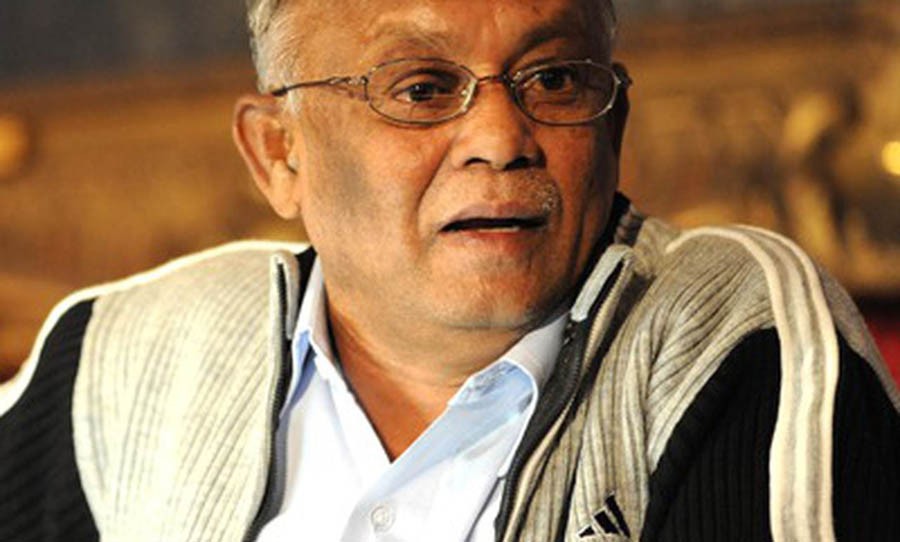
Jockin Arputham's struggle empowered slum dwellers and informed them of their rights world over

Jockin Arputham, who was regarded as the voice of slum dwellers across the globe, passed away in Mumbai on October 13, 2018. He was a strong proponent of the rights of slum dwellers in cities, whom he termed one of the most important social class that managed menial works and sustained lifestyle of the middle classes.
Jockin continued to struggle for ensuring safety of tenure for the vulnerable slum dwellers in different locations in Mumbai since 1970s. From his early childhood, Jockin moved to Mumbai where he lived on pavements, shacks and slums for the next three decades of his life. He learned the vocation of wood work and initially practiced it to earn a living. During these times, he began observing the problems faced by the marginalised communities in Mumbai. The fear of eviction was the foremost among his fellow shack dwellers. Like other primate cities in populous South Asia, more than half of the urban population in Mumbai used to reside in slums without proper services and security of tenure. This equation has not changed to date.
Jockin and his comrades organised the slum dwellers at the grass roots level and developed many a community-based organisations in different locations with a purpose to consolidate their voice. He founded National Slum Dwellers Federation (NSDF) in India as an umbrella organisation to fight for the rights and protection of the urban poor communities.
Large and medium sized cities received thousands of migrants as new city dwellers for whom no provision of housing or urban basic services were available. Jockin supported these communities to organise them and fight for their rights in the wake of eviction fears. Side by side, he enabled these organisations to evolve development strategies for provision of water supply arrangements, sanitation and livelihood support. Building of toilets, basic shelters and other facilities was ably done by Jockin and his team.
Slums are in every developing country. Many of the challenges faced by the slum dwellers are common. When a solution is developed and applied in one context, there is a significant possibility that the same solution could be wholly or partially relevant to other locations. Jockin realised this fact and worked hard to evolve an international platform for addressing the issues of slum dwellers.
An organisation namely Slum Dwellers International (SDI) was founded in 1996 with its headquarters in Cape Town, South Africa. Jockin was its president. The other countries that joined included Kenya, India, Nepal, Namibia, Burkina Faso, Swaziland, Thailand, Togo, Sri Lanka, Zimbabwe, Uganda, Malawi, Tanzania, Argentina, Brazil, Bolivia, Sierra Leone, Lesotho, Ghana and Angola. SDI focused on promotion of women development strategies, slum infrastructure development, creation of saving groups, enumerations and mapping work and mutual exchange of ideas and experiences.
In a world where social dislocations are common due to war, disasters, social conflict and loss of agricultural or pastoral livelihood, the survival option for the helpless is to migrate to cities. Living in informal sector, working for day wages and managing the disconnect from city affairs in every respect remain the key predicaments of such neo-urban dwellers. In the process, these people are routinely exploited by the administration and the wealthy.
Jockin directed his work to empower this disenfranchised urban population and informed them of their rights. He also mobilised them at multiple levels so that slum dwellers could negotiate with respective municipalities and development agencies for acquiring ‘the right to exist’ in respective cities.
Jockin’s work was enormously relevant and inspirational for the Pakistani urban context. There have been many projects which caused irreversible damage to human settlements and environment. Development programmes often give rise to vast scale population displacements. These displacements, at times, are a consequence of inappropriate choice of projects, poor design and rigid implementation procedures. Usually such displacements -- appropriately termed evictions -- affect the poor, helpless and politically marginalised communities. Once the state machinery sets out to undertake a project or programme to that effect, demolition of property, destruction of houses/residences and dislocation of communities becomes the natural outcome.
It is ironic to note that foundations of developmental projects are laid on the debris of the dwellings, businesses and occupation outlets of hundreds of very poor people. Construction of large scale dams, expressways, water works and recently the real estate developments of mega scale, all such undertakings give rise to forced evictions. A few years ago, more than 200,000 people had to be displaced to construct an exclusive signal free corridor of movement along Lyari river in Karachi. Similarly, thousands of indigenous farmers along the Super Highway were forced to leave their abodes and farms to pave the way for a controversial real estate development in private sector.
Slums in Pakistani urban context are a common entity. They are often referred to as Katchi Abadis (squatter settlements). Some quarters believe that Katchi Abadis are scars on our urban face and must be demolished, to be replaced by ‘neat’ and ‘orderly’ structures.
The local political elite in urban Sindh consider Katchi Abadis as vehicles for promoting in-migrations to cities, particularly from Khyber Pakhtunkhwa/FATA. Realtors view Katchi Abadis as potential gold mines and lobby for allowing high density high rise development on the strategically located sites. The reality is in sharp contrast to these perceptions. In reality, Katchi Abadis are places where service providers and other ordinary folks reside. Without their existence, the high lifestyles of the rich cannot be sustained.
Jockin’s struggle and invaluable contribution to the cause of slum dwellers was globally recognised. KIIT University in Bhubaneswar conferred an honorary doctorate degree upon him in 2009. He received the prestigious Ramon Magsaysay Award for peace and international understanding in 2000. The Indian government decorated him with Padma Shri Award in 2011, the fourth highest civilian honour. Jockin was also nominated for the Nobel Peace Prize in 2014. His death has been widely mourned by the dispossessed.